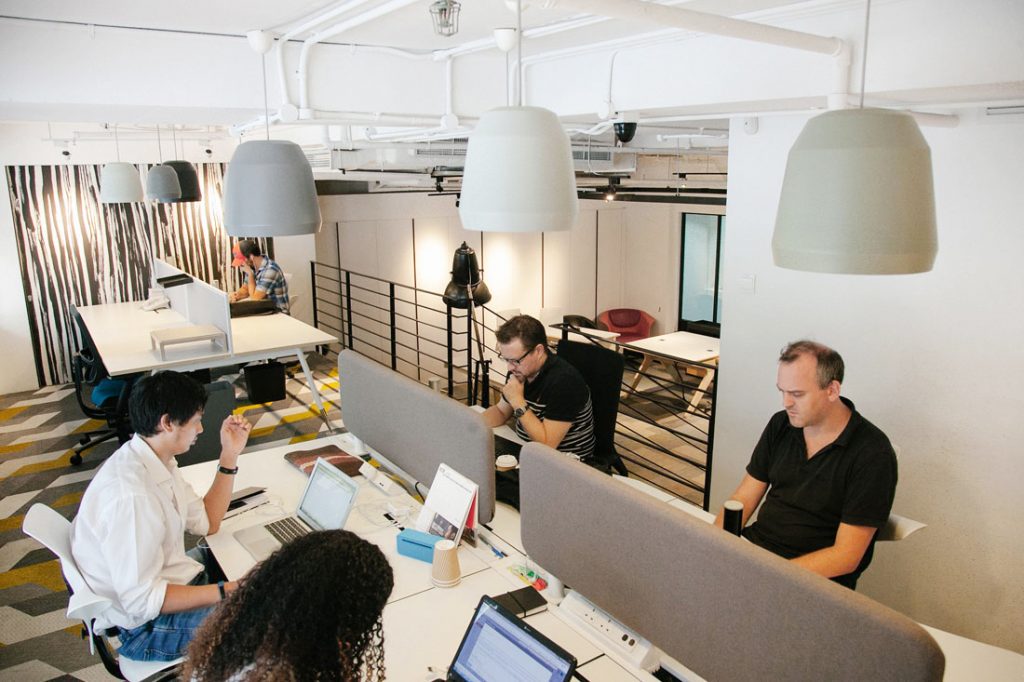Asking questions in your architecture interview is often overlooked by many candidates but it is essential. Doing so shows your interest in the job and that you have done your research. However, as we will cover, there is such a thing as a stupid question.
To help you with your architecture job search, I’ve created a mega-pack of free resources that includes even more sample architecture interview questions, resumes, cover letters, and an extensive collection of application documents.
At the end of the interview is usually the opportunity for you to ask, but just keep it to a few that best fit your situation. Also try to fit some in organically during the conversation. Try to avoid simple yes or no questions.
Ask questions that will help to convince you that this is job will be a good fit for you. Have your questions prepared, they can even be written down.
The questions to ask are broken down into subcategories:
1. Questions about the job
2. Questions about the person interviewing you
3. Questions about the process and next steps
4. Questions You Should Definitely NOT Ask
Questions about the job:
What typical projects would I be working on?
Your research should give you an idea of what projects are in the works so don’t confuse this with “what type of projects do you do. This question shows if you are interested in getting to know the company better, always a good first step.
Where would projects be?
This can be useful for you own information. If you have a family and a majority of the projects are out of town then it might require a lot of travel for meetings etc. Remember that an interview is just as much about getting information for yourself as it is to provide information.
Would I be on one project primarily or several at once?
I have worked in both types of offices. Generally the smaller the office the more of a “jack of all trades” you need to be when it comes to project typologies and design phases.
Personally I get bored if I am on the same project for years, it is nice to have some variety. This is obviously a choice so there isn’t a right or wrong answer but you should know ahead of time what you are getting into.
What is the new build versus renovation projects percentage?
This is another personal preference relating to your career goals. Do you want to specialize in renovation projects or new build? Some firms do a mix but others exclusively do one or the other.
Where would I be working?
Many larger firms have multiple office spaces that may not be where you have the interview. Will you be working in the main office or the shed out back? Good to know before you sign up.

Why is this position open? Is it a new position or a replacement for someone?
If the position is new it is likely a good sign that the office is growing. Just a word of caution, try to figure out if you are being hired for a specific large project or the general growth of the office.
Ideally you don’t want your position at the firm to hinge on the success or failure of one project. As the newcomer you will likely be the first out the door if that project goes south.
Why did they leave?
Obviously if there was a firm wide problem then it is good to know ahead of time, assuming they are willing to share this…
How long does someone typically stay in this job?
A high turnover in any position can be a red flag. Perhaps there is an issue with management, compensation or any number of unknowns. Try to tactfully inquire what those might be without being nosy or pushy.
How soon would the job start date be?
An obvious question to help plan your possible exit from your current role, if you have one. Also if you are going to be moving for this job you need to know how much time you have. Most offices are flexible on start time but the standard is within two or three weeks.
However, there are always exceptions. When I was moving from abroad for example, I negotiated to start in two months. The important thing is to know when you can start and have the date ready to provide.
What can you tell me about this job that isn’t in the description?
This can be a fun way to dig into the day to day work of the job. Are you going to be drawing all day? Doing takeoff’s on site?
What are the prospects for growth for the person in this job?
This can show your interest in staying long term with the company. Managers eat this stuff up so the more eager you are, the better.

This may not apply at a two person firm so make sure you are aware that there really is potential before asking an embarrassing question.
How large is the team I would be working with?
This will give you some insight into the project sizes and how the office hierarchy operates.
What are the most important skills of the person who does this job?
Just be sure to word this carefully that you don’t accidentally exclude yourself by having them list all the skills you lack.
Do you have any concerns with me as a candidate?
I have used this powerful question in the past with great success. It is an excellent way for the interviewer open up about any issues that he or she may have but hasn’t brought up yet.
This can give you a chance to address those concerns instead of leaving them unsaid and not getting a call back.
If anyone has failed at this job, why did they fail?
Often it is good to have a heads up if there is something in your experience or background that could become an issue down the road. Perhaps there is a weakness in your application that you didn’t realize, better to know now.
How many people are enrolled in IDP / Part III / training for their license?
If you are at this stage of your career this question will tell you a couple of things.
1. If the person doesn’t know then it might be a sign they don’t actively support and encourage staff to become licensed and overall training and advancement.
2. The level of experience in the office, if everyone is studying you may not be exposed to a range of more experienced architects.
Who would be my day to day supervisor?
This may or may not be the person interviewing you. Depending the size of the firm you may have more than one person to report to. Since most architecture offices are small you will likely be working with a project manager or the principal directly.
Questions about the person interviewing you:
How long have you worked here?
Most people love to talk about themselves (especially architects) so this can be a good opportunity to build some rapport with the interviewer. Also if everyone you speak with started six months ago you might want to inquire why there is such a high turnover.

What do you like most about working here?
Most people don’t ask this question so it can sometimes result in an interesting, and honest answer. Those are gold. Don’t ask this if you are speaking to the firm owner.
Questions about the process and next steps:
I am excited about the opportunity, what is the next step in the process?
This could mean another round of interviews or reference checks depending on how large the firm is and the position you are applying.
Who should I stay in touch with moving forward?
Make sure you get a name and preferably a business card with an email and phone number. You will also want this to send your thank you note.
Questions You Should NOT Ask:

Try to avoid asking any questions regarding benefits, working hours, vacation or salary at this point. Your main goal of the interview is get them to make you an offer. Once you have the offer you can then discuss compensation and benefits.
Try to avoid these potentially damaging questions that might show you either don’t care or aren’t prepared, either way wouldn’t be good.




